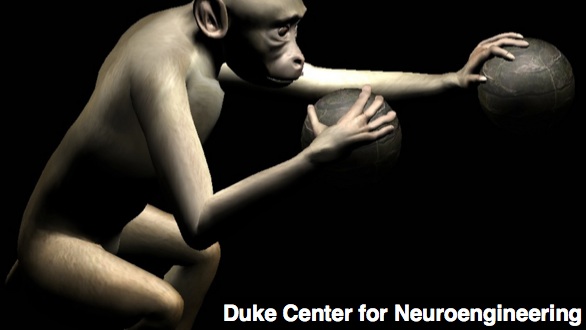Researchers from the Duke Center for Neuroengineering developed technology allowing monkeys to control virtual arms using only their brain signals.
"Scientists were able to create a robotic link that re-routed the monkeys' thoughts to the virtual arms so they could move simultaneously." (Via KUSA)
The research was led by neuroscientist Miguel Nicolelis, who has been experimenting with this technology for the last 10 years. He calls this a key development in building brain-controlled exoskeletons for paralyzed people. (Via The Daily Show)
You know, like in James Cameron’s "Avatar." Only without aliens and with wayyy less impressive graphics. (Via 20th Century Fox)
Researchers are racing to develop tools to restore mobility and sense of touch in the millions of people around the world with spinal injuries. Until now, the brain-machine interface they've been testing has only been able to control one prosthetic limb at a time. (Via Popular Science)
In the experiments, two rhesus monkeys learned to move avatar arms and hold them over two white areas on a screen. While connected to the computer through surgically implanted electrodes, they used their thoughts to replicate the movements in a virtual space. (Via YouTube / BeyondBoundariesBook)
The monkeys did not have to control their hands, which would require much more control and coordination. There's still a long way to go before a system like this could replicate two-handed tasks. (Via YouTube / BeyondBoundariesBook)
The research is part of the Walk Again Project, an international collaboration working to build brain-controlled neuroprosthetic devices. They plan to demonstrate its first brain-controlled exoskeleton during the opening ceremony of the 2014 FIFA World Cup in Brazil. (Via YouTube / General Electric)
But Duke's research team isn't the only group of scientists with good news to share.
In a related study, scientists in the U.K. and Switzerland report using brain-machine interfaces to restore bladder control in paralyzed rats. (Via National Geographic)
Both studies were published in a special issue of Science Translational Medicine, dedicated to brain and machine interfaces.


